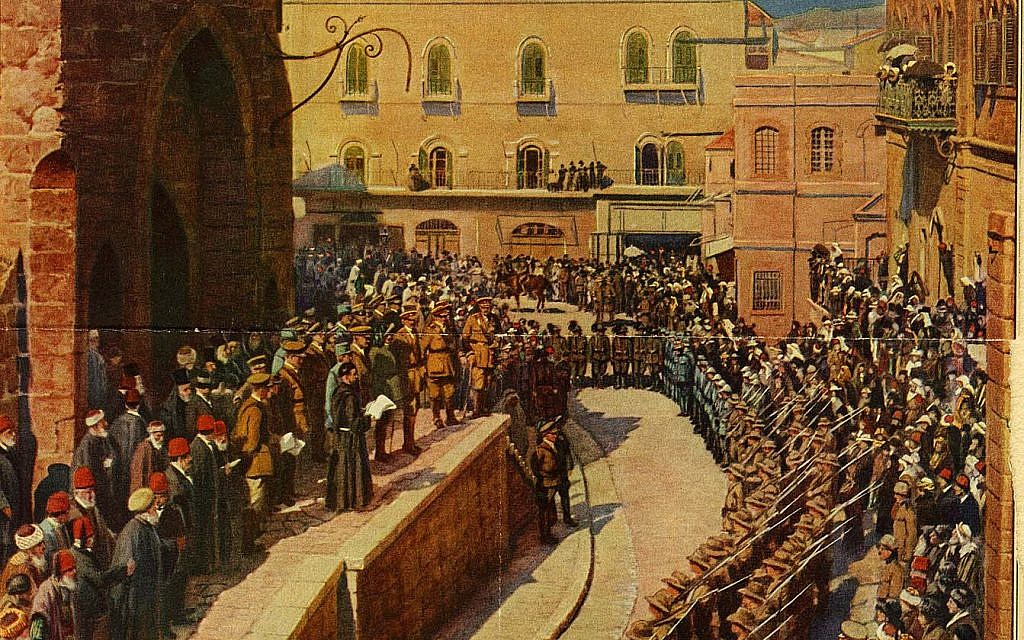The Arch of Titus and Saeb Erekat
Recently, my wife and I visited Yeshiva University's museum on 16th St in NYC to see the Arch of Titus exhibit. We saw the museum's full-size 3-D computer recreation of the famous scene of the Jewish prisoners of war carrying the Temple relics (menorah, shulchan [table], trumpets) to Rome. We also saw the displayed collection of 20-30 coins of the Second Temple period, minted in Palestine, some by the Jews and some by the Romans.Advocates Call for Action Against UN Official Who Headlined Anti-Israel Event at University of Toronto
In one small corner of a display case, I saw the "complete collection" of coins minted by non-Jewish Palestinian governments from 1917 back through the Byzantine period, the Arab (invaders from the Arabian Peninsula and the east) Period, the Roman period, the Greek period, the Persian period, the Jewish monarchy and before that.
The complete set of these coins minted by non-Jewish Palestinian authorities fits comfortably in one small corner of a display case because these coins do not exist and have never existed. There are no such coins. Zilch, zippo, nada, cero, efes, null, gornicht, nuttin. The empty set. There was never an identifiable, Arab Palestinian people, or a Palestinian ethnic identity until the mid-20th century when some Arab hate merchants realized that such a peoplehood and ethnic identity would be useful in opposing the national aspirations of the Jews.
Until the 20th century, "Palestine" was understood by Arabs to be a province in Greater Syria. From 1948 until 1967, Arabs in the part of Eretz Yisrael (the Land of Israel) living under Jordanian control were comfortable with Jordanian nationality and ethnicity. There was no problem in the Arab mind with Jordanian sovereignty on the West Bank of the Jordan River because everyone, Arab and non-Arab, knows that Jordan is Arab Palestine. The post World War I formation by the British of the country of Transjordan resulted in the first example of Palestinian Arabs holding sovereignty in any part of Palestine. During the previous several centuries, the Turks held sovereignty in Palestine.
Advocacy groups are urging action against a United Nations official who headlined an event organized by an anti-Israel group at the University of Toronto (UT) last month.The Palestinian 'pay-to-slay' budget continues
Michael Lynk — special rapporteur for human rights in the occupied Palestinian territory — was the featured lecturer at a November 29th event cosponsored by Canadian Friends of Sabeel and Emmanuel College, UT’s theological school.
According to the Jewish human rights group B’nai Brith Canada, “attendees at the event were required to pay for tickets, with the proceeds earmarked for Sabeel’s operations.”
Sabeel is a leading proponent of the boycott, divestment and sanctions (BDS) campaign against Israel, with its work largely focused on Christian congregations in North America and Europe. The group peddles a Palestinian variation of “liberation theology,” which rejects a Zionist interpretation of the Christian Bible, and has accused Israel of operating a “crucifixion system” against Palestinians.
Lynk in turn is charged by the UN with investigating “Israel’s violations of the principles and bases of international law” — a mandate criticized for both presupposing Israeli guilt and failing to address potential abuses committed by Palestinian factions. A law professor at Western University in London, Lynk has previously endorsed boycotts of Israel and was described before his appointment as “an ardent anti-Israeli activist” who “plays a leadership role in groups that advocate against Israel” by the monitoring group UN Watch.
“By headlining a fundraiser for an extremist group that seeks to boycott Israel, Rapporteur Lynk breached the UN Code of Conduct,” charged UN Watch chief Hillel Neuer. “He promoted a group that targets the same state he is investigating, thereby violating his duty of impartiality, as well as the prohibition against using his office for third party gain.”
In the UK the Daily Express has been running a vigorous campaign exposing the lunacy of the country's £13billion annual overseas aid budget. Every day they publicise a new example of some inappropriate spending. Yet, by far and away the worse example of all - the 'Palestinian' pay-to-slay budget - is never mentioned. This should be an open goal for the Board of Deputies. The British public is sick of the overseas aid budget. If the Board - instead of spending its money fighting 'Islamophobia' - paid for a few ads to expose the pay-to-slay scandal - the Government would come under real pressure to stop these payments once and for all. And that would be a real contribution to the fight against terrorism.










































